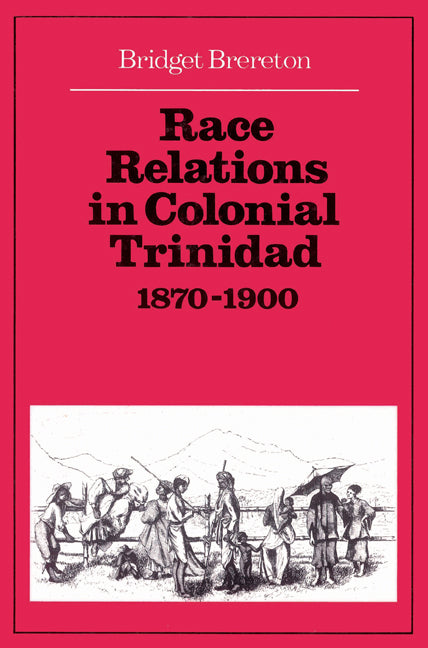Freshly Printed - allow 8 days lead
Couldn't load pickup availability
Race Relations in Colonial Trinidad 1870–1900
An important contribution to the still largely unresearched history of Trinidad.
Bridget Brereton (Author)
9780521523134, Cambridge University Press
Paperback, published 6 June 2002
264 pages
22.3 x 15.2 x 1.6 cm, 0.433 kg
In this study of the development of a colonial Caribbean territory in the late nineteenth century the diverse peoples of Trinidad - Europeans, white Creoles of French, Spanish and English descent, Africans, Creole blacks, Venezuelans, Chinese and Indian immigrants - occupy the centre stage. They formed a society deeply divided along lines of race, skin colour, economic position and educational level. Dr Brereton looks at how the white elite, both European and Creole, was able to control the society, largely unchecked by the Imperial power and its agents in Trinidad, and then investigates the emergence of a group which would challenge that control: the coloured and black middle class. This book makes an important contribution to the history of the West Indies, and especially to the history of Trinidad, still largely unresearched. It will interest historians and sociologists concerned with the development of post-emancipation Caribbean societies and with race relations in the Americas after slavery.
Acknowledgements
Glossary
1. Introduction
2. The environment
3. The white elite
4. Education and mobility
5. The rise of a coloured and black middle class
6. The urban labouring population
7. The black rural masses
8. The souls of black folk
9. The Indians
10. Racism and race relations: the divided society
Abbreviations
Notes
Bibliography
Index.
Subject Areas: General & world history [HBG]


